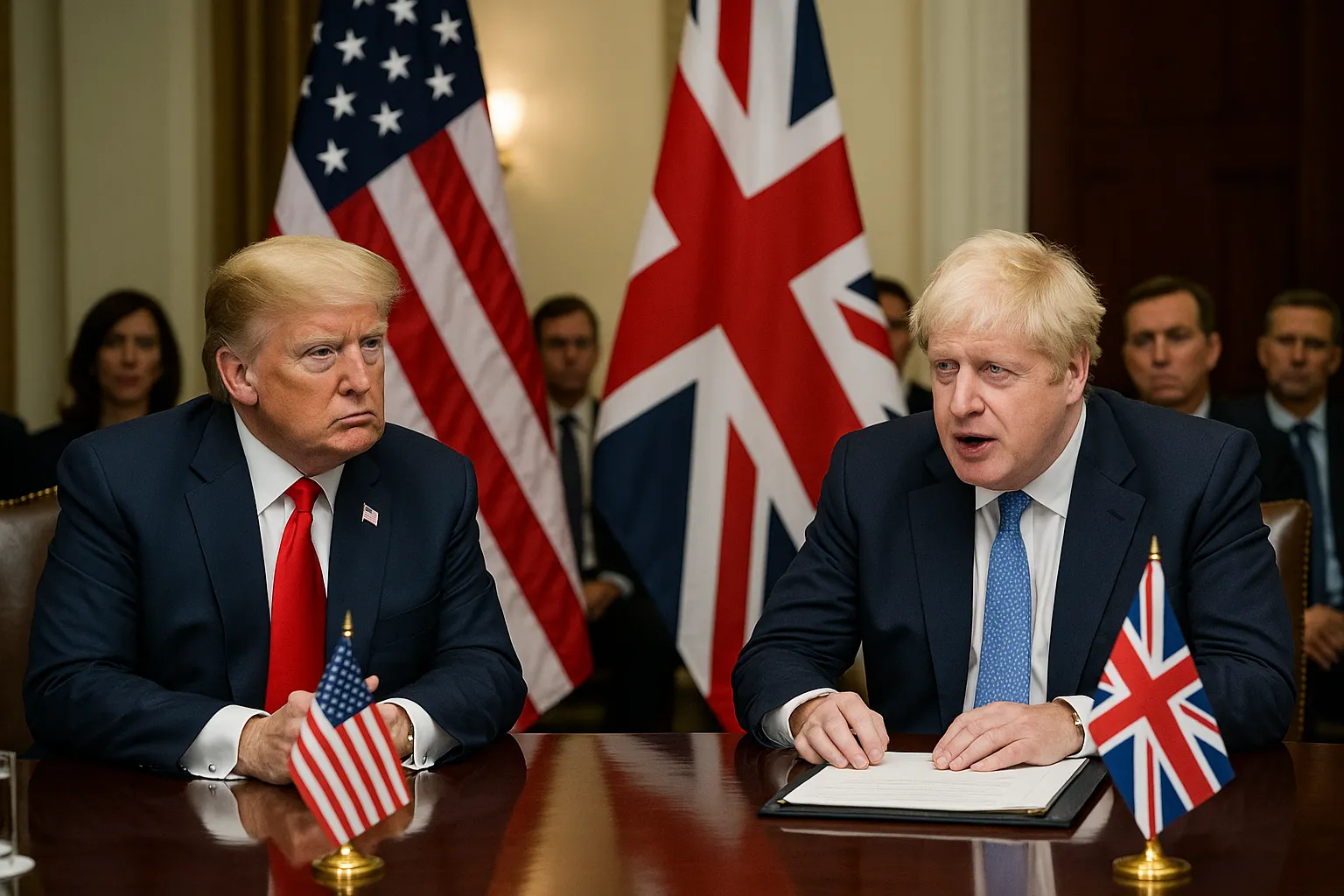The announcement of US Britain trade deals exceeding $10 billion is presented as a bold step toward economic resilience. Yet beneath the headlines lies a far harsher reality: these agreements are not just about growth. They are about survival in a world where tariff wars, fueled by nationalist politics, are tearing down the last illusions of free trade.
Context: the official story
According to Washington and London, the upcoming trade package will strengthen cooperation in technology and energy. Officials frame it as a defense against “global tariff escalations,” pointing to Trump’s push for bilateral agreements over multilateral ones. Britain, post-Brexit, desperately needs new markets. The US, meanwhile, claims victory in dictating terms that supposedly restore “fairness.”
Numbers dazzle. More than $10 billion in signed deals will be showcased. Governments insist this will safeguard jobs, boost innovation, and secure energy stability. The mainstream narrative casts the pact as pragmatic, strategic, and necessary to counter the global trade chill.
Oppositional Argument: the false security of trade pacts
But let’s not pretend these deals are purely economic victories. US Britain trade deals of this size are political theatre, designed to show strength against tariff chaos while masking fragility. Bilateral agreements do not replace the erosion of global frameworks. Instead, they deepen fragmentation, pitting allies against each other.
The rhetoric of “economic resilience” is a smokescreen. Who truly benefits when two governments boast about billions while inflation, wage stagnation, and energy insecurity crush ordinary people? This is not free trade reborn — it is a desperate patchwork stitched together under political pressure.
Analytical Breakdown: causes and consequences
Why $10 billion now? Trump’s tariff campaign has cornered allies into signing quick pacts. The UK, weakened by Brexit and economic stagnation, cannot afford isolation. Washington seizes leverage, demanding concessions Britain would never accept in calmer times.
History repeats. Trade wars of the 1930s showed how bilateral deals deepen divides instead of stabilizing markets. Today, the US Britain trade deals risk the same spiral: fragmented blocs, retaliatory tariffs, and weakened global governance. The consequence is not resilience, but a more brittle world economy vulnerable to shocks.
Energy and technology sectors are chosen deliberately. Both are fields where geopolitical influence matters more than market logic. By securing British alignment, Washington locks in allies against China and the EU. But what happens when Britain is forced to choose between its largest trading partner — the EU — and its political patron, the US?
Human Perspective: the costs borne by workers
For workers in both countries, promises of new jobs ring hollow. Similar past pacts generated profits for multinationals but left local industries sidelined. Farmers in the UK fear cheap American imports will undercut them. US tech workers doubt that transatlantic cooperation means fair wages instead of outsourcing.
Ordinary families care little for billion-dollar headlines. They care about whether their energy bills rise, whether tariffs inflate the price of food, whether currency instability wipes out their savings. These are the human costs glossed over when leaders shake hands on stage.
Counterarguments
Defenders of the deal argue that without it, Britain would slide further into economic irrelevance, and the US would lose a vital ally in Europe. They claim the pact secures energy security and boosts technological innovation.
But these arguments collapse under scrutiny. Energy dependence is not solved by contracts but by structural policy. Innovation cannot be forced by political pacts; it requires investment in education, infrastructure, and research. Most importantly, no bilateral agreement can offset the damage of a collapsing multilateral system.
Conclusion: a fragile alliance paraded as triumph
The US Britain trade deals are sold as triumphs of diplomacy and economics. In truth, they are fragile symbols of a world order breaking apart under nationalist pressure. What is celebrated as “strength” is, in fact, vulnerability disguised as power.
If we keep applauding billion-dollar figures without asking who pays the price, we will miss the deeper tragedy: the dismantling of global cooperation for the sake of political theater. The US and Britain may boast of victory, but their citizens will face the bill.
